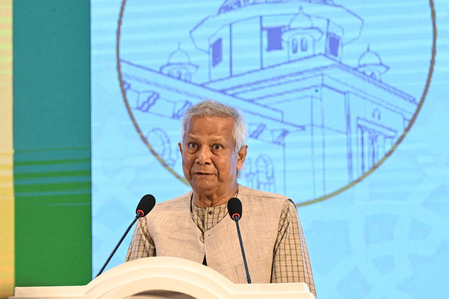Dhaka, August 3:
A recent report by NorthEast News has alleged that Bangladesh’s interim administration, led by Chief Adviser Muhammad Yunus, has compromised the country’s defence autonomy and strategic independence in exchange for a modest tariff reduction from the United States.
According to the report, Yunus, who came to power through backdoor deals with deep-state actors and foreign sponsors, has signed a covert Non-Disclosure Agreement (NDA) with the US. The agreement reportedly bars Bangladesh from procuring defence equipment from long-standing partners China and Russia.
During a recent visit to Dhaka, US Charge d’Affaires Tracey Ann Jacobson allegedly delivered an ultimatum to senior military officials that continuing defence collaborations with China or Russia could result in sanctions against Bangladesh’s armed forces.
The report warns that Bangladesh’s Army, Navy and Air Force—heavily reliant on Russian and Chinese technology, spare parts and logistics—now face serious operational vulnerabilities if these nations retaliate by suspending support.
Economically, the shift risks wider repercussions. Bangladesh’s key garment sector and industrial supply chains are deeply dependent on China. Any retaliation by Beijing could disrupt supplies, push up inflation, and trigger production crises, the report claims.
Critics argue the NDA has been linked to Bangladesh’s plans to purchase 25 Boeing aircraft and overpriced wheat from the US under bundled trade arrangements. These deals, according to the report, mark a departure from the balanced foreign policy maintained by the previous Sheikh Hasina-led government, which engaged simultaneously with India, the US, China, and Russia.
The report concludes that, within a year, the Yunus administration has shifted Bangladesh from a position of strategic non-alignment to what it describes as a “client state,” reducing sovereignty and leaving the military and economy vulnerable to external pressures.










